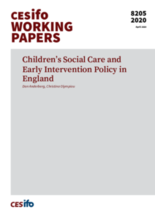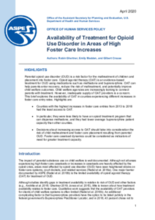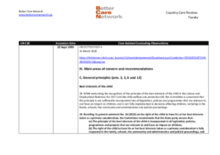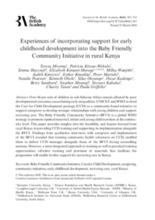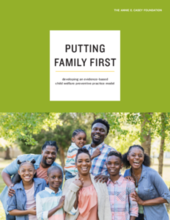Displaying 151 - 160 of 947
Through the lens of a care framework, the present study aims to explore service providers' perceptions of families caring for CWD in resource‐poor settings in South Africa.
This study intended to identify factors associated with receipt of mental health services by caregivers substantiated for maltreatment.
This study explores the relationship between a key early intervention policy in England designed to support families with children up to the age of four and the rate at which children are taken into social care.
This article describes the empirical results of perspectives and experiences of 11 parents’ engagement in child protection assessment practice through in-depth semi-structured interviews in one county in North Estonia.
Parental opioid use disorder (OUD) is a risk factor for the maltreatment of children and placement into foster care. This brief explores the availability of opioid agonist therapy (OAT) in U.S. counties experiencing different increases in foster care entry rates.
This country care review includes the Concluding Observations of the Committee on the Rights of the Child.
This paper provides insights into the feasibility and lessons learned from rural Kenya in providing Care for Child Development (CCD) training and supporting its implementation alongside the Baby Friendly Community Initiative (BFCI).
This paper from the Annie E. Casey Foundation provides guidance for state child welfare agencies on what to consider when developing a preventive practice model that aligns with the requirements of Family First, addresses the unique needs of families within local communities and ensures that selected programs and practices are feasible to implement with quality.
In this chapter, the authors describe the scale-up and impact of a linked multilevel intervention in a public child welfare system.
The purpose of this study was to conduct a systematic review and meta-analysis on the effectiveness of parenting interventions in preventing violence against children.

